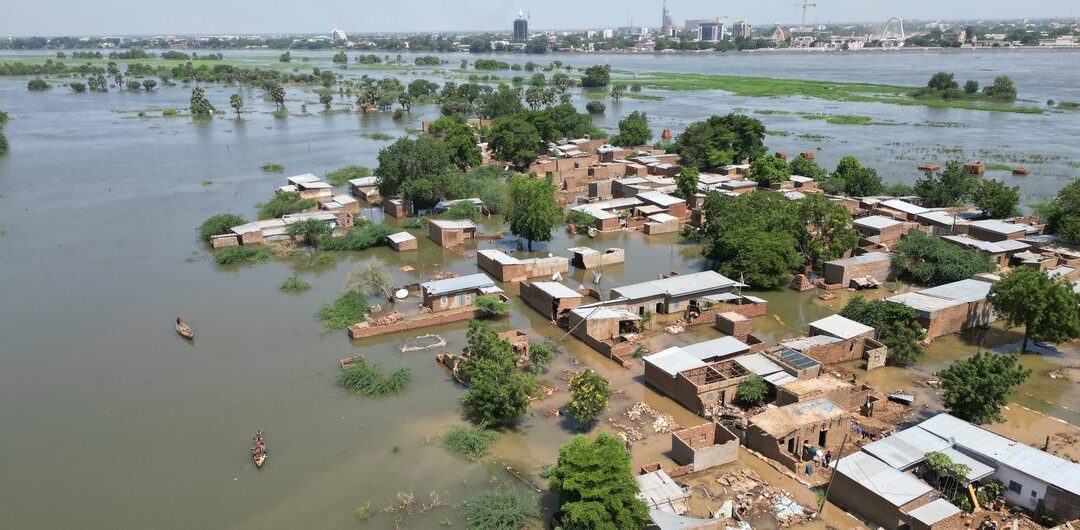From a disaster management perspective, parametric solutions can also be valuable at a smaller scale. For example, they can protect microfinance institutions against their customers being unable to make scheduled payments due to extreme weather events
Properly managing climate risk is becoming more urgent by the year. Which means Indian businesses, industries and government are under increasing pressure to fully understand the impact of climate change.
More specifically, key risks that India currently faces include growing numbers of cyclones, extreme rainfall, and rising temperatures. As a result, India is suffering more, wind damage, urban flooding and business interruption than ever before.
“We have seen a great deal of urban flooding over the last 10 to 15 years in cities like Chennai, Delhi, Mumbai, and Bangalore, which has resulted in substantial economic damage and, consequently, insurance losses,” said Alok Shukla, Munich Re’s Head of property and casualty underwriting for India.
“There have been major increases in urban flooding, even in cities historically have not seen flooding in many years and, in some cases it’s the first time it’s happened,” he said.
Higher temperatures also pose an enormous challenge to India. The country has consistently recorded new temperature highs year on year over the last 20 years. There is no reason to believe this trend won’t continue in coming years.
“Higher temperatures directly impact weather and, as a result, businesses in a number of ways,” said Shukla.
For example, the direct effects are felt in agriculture with more erratic crop production, as well as loss of productivity of outdoor as well as indoor workers.
Another weather phenomenon undergoing change is the cyclone pattern. Historically, cyclones have tended to impact the East Coast of India.
As the industry is more concentrated on the West Coast, so far we didn’t see many major losses due to cyclones. But now a growing number of cyclones is hitting the West Coast too, which has already caused minor damage to industrial hubs in the region.
“We’ve been lucky so far, none of the cyclones have hit industrial zones that hard but, every year, the possibility of it happening increases,” said Shukla.
Organisations are concerned about climate risk
A recent climate risk study shows that the concern level surrounding the problem is very high.
However, despite this notable level of concern, many organisations are not taking relevant steps to protect their businesses from losses that could result from business interruption. There is a significant insurance gap.
“Even though cyclones and heavy rainfalls will likely seriously impact businesses in coming years it hasn’t happened yet, so people are perhaps a little complacent,” Shukla explained.
“The impact of these events could also have secondary effects across the whole country. For example, Manufacturing hubs for industries like steel/ Oil and Gas/ Pharma, Should anything happen there, all industries across the country that depend on its output would be impacted too,” he said.
Beyond “the concern versus preparedness gap” there is insufficient education on insurance options in general.
“For example, not enough people know they can bridge the gap between risks covered by traditional insurance products and the additional risk that climate change exposes businesses to using parametric insurance products,” explained Shukla.
“It does not help that many people still are not taking enough seteps to address their concerns around climate change,” he said.
Building resilience through awareness and preparedness
Insurers and reinsurers can play a key role in supporting India’s climate risk preparedness by helping the country to build resilience and close insurance gaps, as well as by providing access to climate-wise expertise and experience.
In addition, insurers can mitigate climate risks by educating organisations on the potential challenges they face are and, not least, how insurance products can help them better protect themselves.
It is also worth noting that the insurance industry continues to innovate, looking at ways traditional products can be improved to provide greater coverage.
For example, Munich Re has worked on a parametric product with the Indian state of Nagaland. In case of a disaster, the state will automatically and immediately get paid out should climate factors such as excess rainfall reach a certain threshold.
The advantage of this approach is that the state can quicky distribute the relief amount to the population so that assistance is received in good time.
“This demonstrates how Munich Re can help bridge insurance gaps at different levels,” explained Shukla.
“It’s not always simply about and individual client or even a particular industry sector. The Nagaland example demonstrates an ability to fill the protection gap related to climate events at the state level,” he said.
Typically, insurance solutions like the Nagaland example are structured as public private partnerships (PPPs), involving the insurer, a government entity and the reinsurer.
“We are able to meaningfully support these initiatives by contributing know-how gained in global markets as well as by providing capacity, which is critical because such products usually have significant inherent risk,” said Shukla.
From a disaster management perspective, parametric solutions can also be valuable at a smaller scale. For example, they can protect microfinance institutions against their customers being unable to make scheduled payments due to extreme weather events.
There are also weather-related parametric products specifically for farmers as well as larger entities such as solar or wind power plants.

